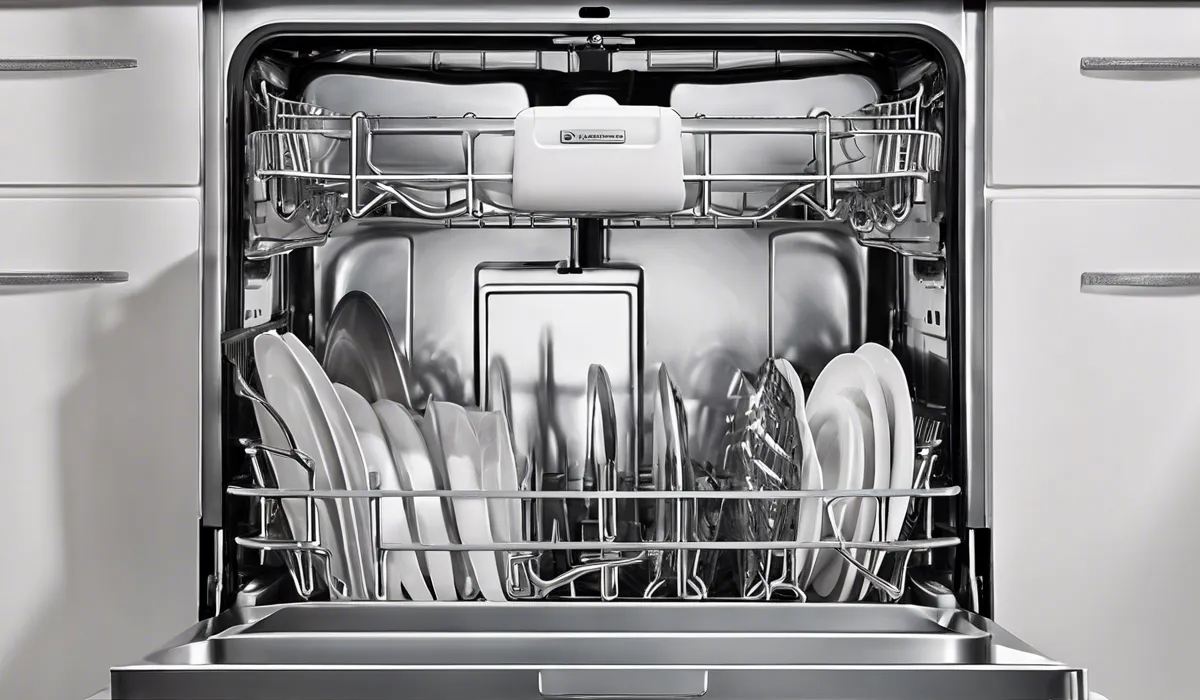Why Do Dishwasher Need Salt? The Untold Impact on Cleaning!
Dishwashers need salt to soften hard water, preventing lime scale buildup and ensuring dishes are cleaned effectively. The salt regenerates the ion exchange resin in the softener unit, removing calcium and magnesium ions that cause water hardness. This process enhances detergent efficiency, protecting both dishes and the dishwasher from mineral deposits.
The Role of Salt in Water Softening

Understanding Hard Water and Its Effects
Hard water contains high levels of minerals, primarily calcium and magnesium. These minerals are not harmful to health but can cause problems in your household systems.
When water with a high mineral content is used in dishwashers, it can lead to inefficiencies and potential damage over time.
Challenges of Hard Water in Dishwashing
When washing dishes, hard water can hinder the cleaning process. The minerals in hard water can react with dishwasher detergent, reducing its effectiveness. This can leave dishes with spots and residue, making them look unclean even after a wash cycle.
How Salt Facilitates Water Softening
Salt plays a crucial role in transforming hard water into soft water. It does this by regenerating the ion exchange resin within your dishwasher’s softener unit. This process is essential for removing the calcium and magnesium ions that make the water hard.
The Ion Exchange Process Explained
The ion exchange process is a chemical reaction where undesirable ions in the water are replaced with sodium ions from the salt.
The resin beads in the dishwasher’s softener unit attract and hold onto the calcium and magnesium, releasing sodium ions in exchange. This leaves the water softer and better suited for cleaning your dishes effectively.
Protecting Your Dishwasher and Dishes

Combatting Limescale Buildup
Limescale is a hard, chalky deposit that forms when hard water is heated. Inside a dishwasher, limescale can accumulate on heating elements and moving parts, reducing efficiency and potentially causing breakdowns.
Using salt to soften the water is a proactive way to prevent limescale from forming.
Role of Salt in Limescale Prevention
By adding salt to your dishwasher, you’re ensuring that the water softening mechanism can function correctly.
This prevents limescale because the minerals that would typically form these deposits are removed from the water before they can accumulate on your dishwasher’s components.
Softened Water for Spotless Dishes
Soft water not only protects your dishwasher but also results in cleaner, spot-free dishes. Without the mineral ions that cause water spots, your dishes will come out of the dishwasher looking shiny and new after every cycle.
Cost Savings Through Maintenance and Efficiency
Over time, the use of salt in your dishwasher can lead to significant savings. By avoiding limescale buildup, you’ll reduce the need for repairs and extend the life of your dishwasher.
Additionally, softened water enhances detergent efficiency, meaning you can use less detergent and still get excellent results.
How to Use Dishwasher Salt Properly

Selecting the Right Dishwasher Salt
It’s essential to use the correct type of salt designed for dishwashers. This salt is coarse-grained and pure, ensuring it doesn’t block the softener unit. Table salt, rock salt, and sea salt are unsuitable and can damage your dishwasher’s softening system.
Adding Salt to Your Dishwasher
Refilling the salt in your dishwasher is a simple process. Locate the softener unit, usually at the bottom of the dishwasher, and unscrew the cap. Then, pour the salt into the unit, taking care not to overfill it. Finally, replace the cap securely.
Understanding Refill Frequency
The hardness of your water will determine how often you need to add salt to your dishwasher.
In areas with very hard water, you may need to refill the salt more frequently. Your dishwasher may have a light or indicator to tell you when it’s time to add more salt.
Solving Common Dishwasher Salt Issues
If you encounter issues such as the salt not dissolving or the softener unit overflowing, it’s important to troubleshoot these problems quickly.
Ensure you’re using the correct salt and that the unit is clean and free from blockages. Regular maintenance can help prevent these issues and keep your dishwasher running smoothly.
FAQs About Dishwasher Salt
Why is salt necessary in a dishwasher?
Salt is necessary in a dishwasher to soften hard water, which prevents lime scale buildup and ensures that dishes are cleaned effectively.
How does salt help in a dishwasher?
Salt helps in a dishwasher by regenerating the ion exchange resin in the softener unit, which removes calcium and magnesium ions that cause water hardness.
Can a dishwasher run without salt?
A dishwasher can run without salt, but it may lead to lime scale buildup and less effective cleaning, especially in areas with hard water.
What happens if you don’t add salt to a dishwasher?
If you don’t add salt to a dishwasher, it can result in water spots, cloudy dishes, and a shorter lifespan for your dishwasher due to lime scale deposits.
Does dishwasher salt improve detergent performance?
Yes, dishwasher salt improves detergent performance by enhancing its ability to clean dishes effectively without interference from minerals in hard water.
Final Thoughts
Dishwasher salt is essential for softening hard water, thus averting lime scale accumulation and ensuring thorough cleaning of dishes.
It rejuvenates the dishwasher’s ion exchange resin, effectively removing the calcium and magnesium ions responsible for water hardness.
This not only boosts detergent performance but also safeguards both the dishes and the dishwasher from harmful mineral deposits.
Useful Resources
- https://health.mn.gov/communities/environment/water/factsheet/softening.html
- https://ready.nola.gov/incident/saltwater-intrusion/water-conservation/?utm_source=nola&utm_medium=banner
- http://www.fsis.usda.gov/food-safety/safe-food-handling-and-preparation/food-safety-basics/washing-food-does-it-promote-food





